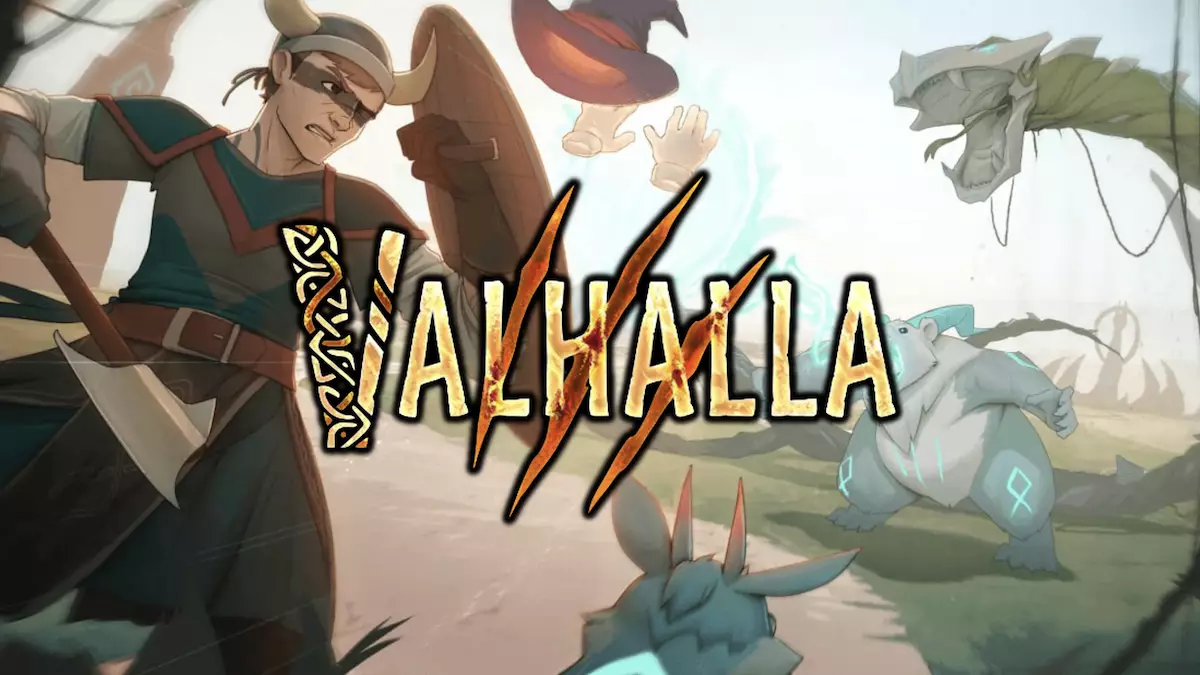Valhalla isn’t just another entry into the crowded market of MMORPGs; it represents a paradigm shift toward a digitally-interactive world defined by Web3 principles. Rooted in the legacy of the well-known Floki Inu creators, this game aims to deliver not merely entertainment but also financial opportunities for gamers. The drive towards a decentralized economy and core NFT ownership is reshaping the foundation of online gaming, providing players with an appealing landscape in which their digital efforts yield real-world results.
Set against the rich backdrop of Norse mythology, the world of Valhalla invites players into a vast expanse filled with mythic creatures, treasure-laden landscapes, and strategic combat scenarios, all emphasized by a robust play-to-earn model. This is not just about defeating opponents; it’s about cultivating a territory where players can evolve their skill sets, build wealth, and engage in immersive, narrative-driven adventures.
At the heart of Valhalla lies its engaging gameplay, which utilizes a turn-based combat system. This approach compels players to think critically and devise strategies with every move, transforming battles into thrilling intellectual challenges. It deviates from the frantic button-mashing typical of many action-oriented MMORPGs, favoring a thoughtful approach that champions tactical ingenuity. Players assume the role of Viking warriors who must capture and train Veras, unique digital beasts that augment their combative abilities and strategic capabilities. Not only do these Veras serve as collectibles, but they fundamentally influence game dynamics by providing varied strength and rarity levels that can sway the outcome of battles.
In addition to combat, the game’s vast exploration mechanics allow players to traverse a richly woven tapestry of quests and resource-hunting opportunities. The excitement of wandering through bustling towns, interacting not only with NPCs but also real players, fosters a genuine sense of community within the game. This interaction fuels the decentralized economy, allowing trading and the establishment of player-driven marketplaces where in-game assets derive real-world value.
Unlike traditional gaming models where in-game achievements often yield nothing more than bragging rights, Valhalla integrates a compelling play-to-earn framework that stands out in the rapidly growing realm of Web3 gaming. As players embark on quests, battle opponents, or engage in farming activities, they can acquire unique currencies such as Runix or Onyx, which can later be translated into FLOKI tokens after the mainnet launch.
The design of Valhalla ensures that aligning one’s gameplay skills with economic advancements creates a rewarding feedback loop. The stronger the player’s Veras, the greater the opportunity for earning, as level and rarity directly correlate to earning potential. Seasonal events and tournaments add layers of complexity and competition, enhancing engagement while introducing lucrative rewards such as FLOKI tokens and other resources, thus fostering a vibrant gameplay ecosystem.
Currently in its Testnet phase, Valhalla is still refining various game mechanics based on extensive player feedback. This crucial stage is not merely about bug-fixing but is integral to fine-tuning gameplay, economic balance, and overall user experience. Although the functionalities are somewhat limited during this pre-launch period, players can engage in collaborative exploration, helping to construct a stable and engaging environment. The anticipation for the full launch grows as the game’s developers focus on elevating both the gameplay experience and the decentralized economy.
To participate in the Testnet experience, players need not only a consistent gameplay strategy but also a Web3 wallet like Metamask, ensuring that their game progress and achievements are securely backed up on the blockchain. This incorporation of blockchain technology provides a safety net that fortifies the player’s investment in time and resources.
As Valhalla endeavors to carve its niche, it aims not only to entertain but also to inspire a redefinition of player interaction in digital realms. The combination of ownership through NFTs and an economic framework that rewards actual play positions it at the forefront of an evolving gaming landscape. Furthermore, partnerships with leading organizations such as Alliance are reflective of its ambition to tap into competitive gaming circles, widening its reach while enhancing community engagement.
In summation, Valhalla embodies an evolution in interactive gameplay, merging storytelling, strategy, and economic empowerment under a Web3 banner. As blockchain technology continues to infiltrate various domains, the significance of games like Valhalla sets the stage for an innovative future where players can not only enjoy immersive experiences but also reap the tangible rewards of their digital exploits. The gaming industry stands on the brink of transformation—one that promises to value the player’s contributions, commitment, and creativity in uncharted ways.

